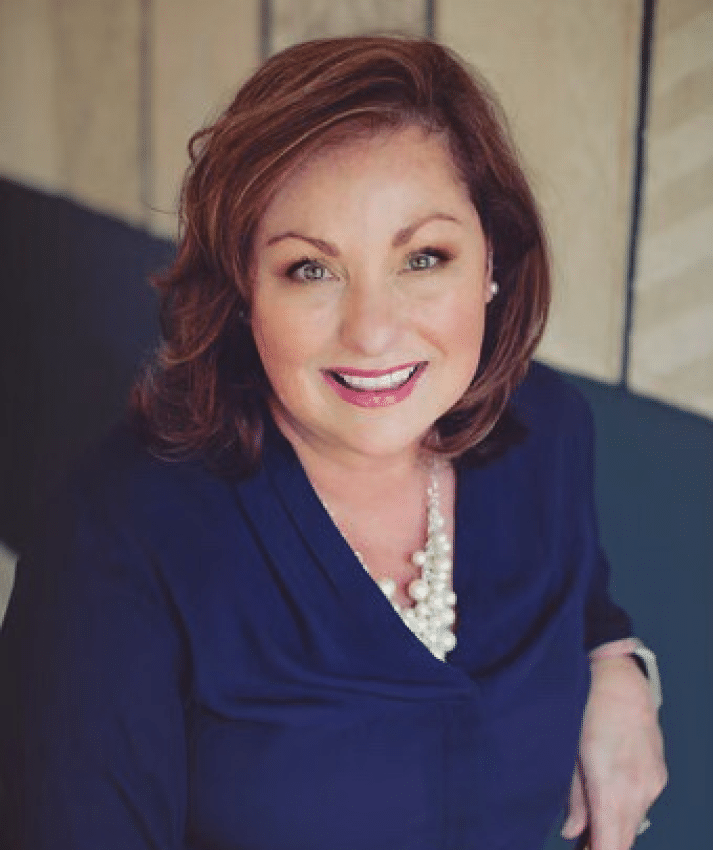Dr. Rebekkah Merrell
I graduated from dental school, so I’m smart, right?
A few years after finishing my residency, I decided I wanted to own my own practice. I was trapped working for a corporate practice that made me hate going to work everyday. I was itching for a change and fast.
I began looking for practices to purchase in my ideal location. I would see a practice come on the market, and by the time I heard back from the listing agent, the practice would be under contract. I was frustrated and desperate.
After multiple requests for practice information, listing agents and sales reps realized I was actively looking for a practice and began providing leads for practices coming on the market. I would look at a practice. I would review a practice prospectus with all the amazing highlighted aspects of the practice and be told what I wanted to hear. Yet, many of the practices I looked at had red flags even I could see. I was even more afraid of what I didn’t know.
By the time I was ready to make an offer on a practice, it slipped through my fingers, and I became more desperate. I wanted out of my job.
I found what I thought would be a great fit, and I wanted to move forward. I did the smartest thing I have ever done: I hired a buyer’s consultant, “aka” a transition advisor. My transition advisor saved me from making this biggest mistake ever on different practices on multiple occasions.
On each occasion, I liked the location of the practice, the pretty décor and what the practice numbers appeared to be. I almost made a million-dollar mistake not once, but on three different occasions.
Dental school taught me to be a good dentist; it did not teach me how to buy or own a dental practice. The smartest thing I ever did was find a trustworthy advisor who had my back in addition to a dental-specific attorney and accountant.
The practice owner pays the listing agent or broker. While they are also supposed to help the buyer, they directly benefit from selling you the practice. They don’t have to point out the not-so- pretty details of the profit and loss statement to you or explain the prospectus. It is your responsibility to make a wise choice on purchasing a practice. Without a transition advisor, I would be up a creek without a paddle. I cannot stress enough how important it is to protect yourself as the buyer – not just with a good lawyer and accountant but with a transition advisor who can tell you the good, the bad and the ugly.
While going through my search for a practice, I came across a horror story about a dentist who was purchasing her first practice. She purchased a high-end general practice. After opening the doors, she discovered the seller’s many skeletons: the fabricated procedure codes fraudulently used to make the dental practice appear to be a high-end practice. Patients received unnecessary treatment, and there was no disclosure to the purchaser of the fact that the patient base included a managed care contract.
The purchaser was compelled to hire an attorney and take the seller to court “seeking rescission of the purchase agreement and monetary damages.” Every penny paid for goodwill went up in flames. All of this was due to her failure to do her due diligence. She won the case, but the practice is now worth less than what she paid for it as patients left the practice because they lost all trust in the dentists. Moral of the story: do your homework and find someone who has your back.
Want to stop yourself from making a mistake that will affect the rest of your life? Hire a transition advisor! The few thousand dollars you spend on the front end will pay off big in the end.
I’ve since found the practice of my dreams and successfully closed on it a few weeks ago.
Please meet the advisor who saved my bacon. Her name is Mary Fisher-Day.
(Continued in the next article How a Qualified Transition Advisor Will Give You Peace of Mind and Save You Money)

Rebekkah Merrell received her undergraduate and master’s degree in bioengineering from Clemson University and the Medical University of SC, respectively. She then went on to obtain a dental degree from the University of Pennsylvania School of Dental Medicine. She then completed a general practice residency at Carolinas Healthcare System. She practiced dentistry in the Charlotte area for a few years prior to purchasing her own dental office in Asheville, NC – where she and her two dogs are extremely happy to work and call home!

How a Qualified Transition Advisor Will Give You Peace of Mind and Save You Money
Mary Fisher-Day
(Continued from prior article Buying a Dental Practice: How One ADecision Saved My A** and Likely, My Career)
As a dentist, it’s one of the most important decisions you will make in your career, yet most will not have a transition advisor when buying a dental practice. I get it; you’re paying an attorney and a CPA and feel they have you covered. They will certainly provide you with legal and accounting advice and you may be advised as to reports you should review.
How will you know whether the reports are accurate? There’s no way to know for sure unless you have a well-qualified transition advisor represent you.
Most selling dentists assume the practice management reports speak for themselves. The fact is, the more PPOs or managed care accepted, the more likely the production to collection percentages are inaccurate. Many practices with a large PPO or managed care patient base bill at the PPO fee, rather than the practice’s normal fee schedule. Chances are, the practice owner doesn’t truly know how the data is entered and under what parameters. It’s easy to understand how they would take their numbers at face value.
An example: Dr. Smith’s year-end report shows production was $960,000.00 and collections were $949,000.00. This puts their collection to production percentage at 99%. Looks great!
In looking further, I note that the practice participates in 5 PPO plans and immediately realize that something is off. The average PPO adjustment is over 30%. This practice participates in 5 PPO plans, so there’s no way they’re truly collecting 99% of what they’ve produced. Unless…they are billing patients via the insurance plan’s fee schedule, rather than the practice’s fee schedule.
There are multiple problems with billing insurance and your patient based on an insurance company’s reimbursement rates. This is one that most don’t realize: Unless an insurance company is billed at your normal fee schedule, the practice will not receive a raise in reimbursement rates unless you hire a PPO fee negotiator. Why would an insurance company pay you more than the fee you billed? They won’t.
In this case, it does no good to review the normal practice fee schedule when trying to determine the potential of the practice and what the production to collection percentage really is. A purchaser will need to review the practice fee schedule in addition to each participating PPO fee schedule. Keep in mind that if the seller is a premier provider for Delta, they are likely compensated at a higher rate than you will be. Check your state plan.
You may wonder why the true production numbers matter. These numbers matter because you incur a majority of your expenses based on your production. You can’t produce without employees, equipment, supplies, lab fees, electricity, etc. You need to know the true production numbers.
Other important considerations for an advisor:
You need someone who not only knows what reports and documents need to be reviewed but also where and how to find them.
Your advisor should have a great understanding of the practice’s cash flow, and an understanding of the profit and loss report is essential.
Know your lenders. There are options out there. I am a fan of dental-specific lending institutions as they typically make the loan process less daunting and loan 100% of the sales price plus working capital. It’s a good idea to obtain pre-approval for a loan.
You need an advisor who can help you stand your ground on the practice A/R. If you don’t want to pay an employee to collect the seller’s A/R after the transition, you can make an offer to purchase the A/R. There’s a simple formula to which most buyers and sellers gladly agree.
Other issues that require advice following the accep- tance of an offer:
- What to do about work in progress
- How are remakes handled?
- Lease or real estate purchase negotiations
- Proration of employee benefits
- Credits on patient accounts
- Letter to patients announcing new ownership
- How and when to tell the team about the practice sale
What I’ve listed above are just a few of the things with which an advisor will help you during a transition, and these are just a few of the decisions you will make during the transitions process.
In summary, hire someone who understands the ins and outs of a dental practice transition. Every practice is different. No two teams are the same. It’s unlikely that two philosophies will be the same. There will always be variables. Having a personal transition advisor will give you a huge advantage.
Regardless of how you transition into or out of dentistry, surrounding yourself with people of integrity is a decision you won’t regret.

Mary Fisher-Day, Transition Advisor at JPA Transitions, has served the dental industry for more than thirty years. She is an author, educator, transition advisor, and coach. Mary is the founder of The Dental Business®, Bites and Business, and Legacy Dental Coach and author of “The Dental Business; a Blueprint for Success.” Mary launched Legacy Dental Coach after realizing that, whether buying or selling a dental practice, most dentists are under-prepared and under-represented when making the most important decision of their career. She has witnessed how a lack of preparation and representation can be devastating on either end of a practice transition. As a personal transition advisor, Mary helps young dentists successfully navigate the purchase of a dental practice and assists dental practice owners in the planning, preparation and transition of their practice. Through her years of practice management and transition consulting, Mary has gained the experience and knowledge dentists need to have peace of mind before and during their transition.







